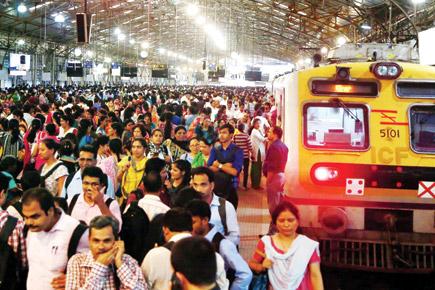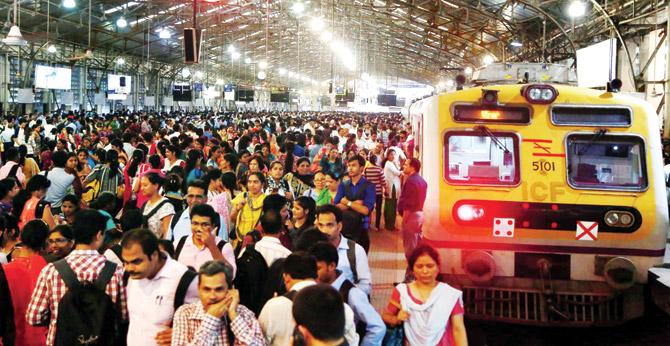Enduring toxic fumes and losing time and money every day is a reality for millions, all because some of us can't follow rules

 It took me a little over 26 minutes to traverse a 1.5 kilometres stretch a few days ago. I was traveling from a friend's place to Andheri station, but that's the time the measly distance cost me. It happened due to a number of reasons, starting with the fact that there were two traffic bottlenecks along the way. The traffic lights were all functioning, so that wasn't the problem; what added to the minutes was the uncaring attitude of people towards traffic signals. Rickshaws and motorbikes jumped red lights deliberately, callously jeopardising the lives of hundreds and triggering massive traffic snarls in their wake.
It took me a little over 26 minutes to traverse a 1.5 kilometres stretch a few days ago. I was traveling from a friend's place to Andheri station, but that's the time the measly distance cost me. It happened due to a number of reasons, starting with the fact that there were two traffic bottlenecks along the way. The traffic lights were all functioning, so that wasn't the problem; what added to the minutes was the uncaring attitude of people towards traffic signals. Rickshaws and motorbikes jumped red lights deliberately, callously jeopardising the lives of hundreds and triggering massive traffic snarls in their wake.

Despite the rush hour madness, thousands of Mumbaikars depend on trains as the city's 'lifeline' every day. File pic
ADVERTISEMENT
I could have walked, of course, but it was pouring at the time, which turned every step into a potential death trap. Dealing with a combination of potholes, unstable manholes and waterlogged streets was not something that excited me. And so, I sat still for 26 minutes, surrounded by others like me in cabs, cars, buses and rickshaws, trying to figure out how millions of Bombayites did this every day — breathing in petrol fumes, losing time and money, calculating the cumulative loss in terms of years, all because some of us couldn't be bothered to follow the rules.
The rickshaw dropped me less than 100 metres from Andheri station, beyond which it wasn't allowed to go. This was supposed to have been done to make the life of pedestrians easier but, unfortunately, I couldn't hop and skip to the ticket counter because I still had to manoeuvre past illegal hawkers, two of whom were frying something in large pans of hot oil. The hawkers are evicted by the BMC approximately once every other year or so.
Interestingly, the BMC office in charge of the ward stands opposite the station, but I assume the officers inside couldn't see the illegal hawkers because unopened files obstructed their view. A number of paver blocks outside the station were missing too, which didn't help.
When I finally reached the station, I found that the ticket counter was actually located a floor above. This wasn't a problem for me, but it took the wind out of a few older people, who had to walk up what felt like 50 steps before walking down another 50 in order to reach the platform. I sent a silent prayer of thanks, for the thousandth time, for not being disabled. To be handicapped meant I would simply be unable to reach the ticket counter, let alone a platform. The ones that did manage to make it had to try and make their way through the crowds on the stairs at any given time of day, and then find space in the tiny handicapped compartment, provided they weren't already occupied by people whose only handicap was mental.
It took me 14 minutes to actually purchase a railway ticket, thanks to lines that crawled, despite the fact that millions of commuters probably had monthly passes already. There were smart card machines around too, but two of them weren't functioning, which meant the lines for the ones that worked weren't particularly short either.
I finally stepped onto a platform around 50 minutes after I left my friend's place. It was a journey I ought to have accomplished in less than 10 minutes in any other so-called global city.
The trains were late, naturally. It has been decades since I last saw one cruise into a platform on time, and this was the Western Railway, which has always supposedly been a lot better than the Central or Harbour lines. A delay of one minute alone adds to what is referred to as 'super-dense crush load' by people who are routinely horrified by the pride of India and Bombay's 'lifeline'.
A delay of a mere five minutes, at rush hour, really can mean the difference between life and death for some people. A week ago, for instance, a 66-year-old man had a heart attack and collapsed on a train bound for Vashi. According to media reports, he had no history of heart disease, but the attack was triggered by breathing problems.
In a bizarre coincidence, a 40-year- old on that train felt breathless too, and collapsed. The latter recovered after being helped onto a platform; the former didn't make it.
I reached my destination two-and- a-half hours after starting out. I didn't complain. Like 20 million others, I put my head down, cursed the people who pretend to manage Bombay, and got on with the business of living.
When he isn't ranting about all things Mumbai, Lindsay Pereira can be almost sweet. He tweets @lindsaypereira Send your feedback to mailbag@mid-day.com
 Subscribe today by clicking the link and stay updated with the latest news!" Click here!
Subscribe today by clicking the link and stay updated with the latest news!" Click here!







